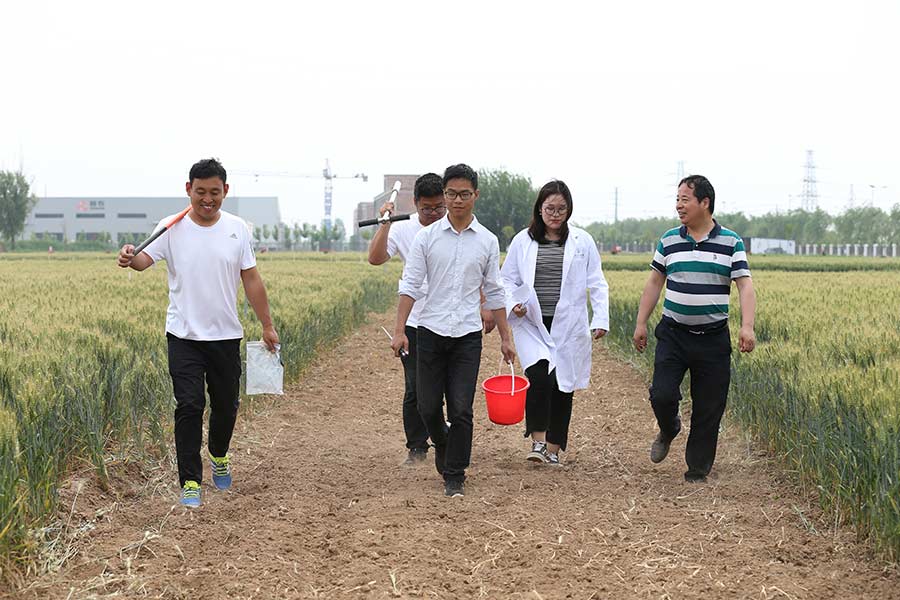China's agriculture model suitable for Africa
By Li Hongyang in Handan, Hebei | China Daily | Updated: 2019-06-01 10:54

About 30 students from Africa will live in rural China this year to study agricultural technology and then return home to coach farmers in techniques for increasing their crop yields.
The resident adviser model - dubbed Science and Technology Backyard - was developed by China Agricultural University in Baizhai, Quzhou county, Hebei province, in 2009 and has proved successful.
Living in village backyards, students and professors can provide face-to-face guidance to farmers, helping them to be more productive and contribute more to their countries' food security.
More than 120 Science and Technology Backyards currently operate in villages across China.
Jiang Rongfeng, a professor at the university, said the exchange program helps develop models suitable for the sustainable development of African agriculture and is just one of several ways of supporting the continent. Others include establishing "backyards" with local enterprises and signing agreements with governments.
"African students can learn technology and acquire practical skills in farming and management methods under the backyards program. After a year's study, they will return to their countries and set up their own backyards," he said.
He added that the exchange program is still in the approval process of the China Scholarship Council.
Data from the university show that for seven years after the establishment of the backyards, food production on a 26,680-hectare field in Quzhou increased by an average 115 million kilograms per year.
Li Xiaolin, a professor and one of the three initiators of the model, said that living and doing research in backyards connects researchers with farmers, which helps in turning technology into productivity.
In May 2009, the professors and students lived at an experimental station about 20 kilometers from Baizhai, which made it hard for them to communicate and work with local farmers.
"However, after settling in the backyards, we can keep up with farmers' schedules and gain more knowledge about their habits and farming practices," Li said.
An Zhichao, a CAU student, moved into a backyard in Quzhou this year. He said he felt fulfilled and motivated when he was able to solve problems for farmers.
"One of our major tasks is to give guidance to farmers - such as how to treat yellow wheat seedlings. When our suggestion proved effective, more farmers were willing to trust us and take our training courses," he said.
So far, the university's professors and students have published about 220 academic papers about the backyard model. Two of them were published in Nature, a leading science journal.
Jeff Collett, a professor of atmospheric science at Colorado State University in the United States, paid a visit to the Quzhou Backyard in May, and after talking to several students there he said they had good ideas and could convince farmers to try new practices.
"I think they are on the right track. Students involved in the program have a lot of responsibility," he said.
Oene Oenema, professor of agronomy, nutrient cycling and nutrient management of Wageningen University in the Netherlands, said he found the backyard concept to be an interesting method for bridging the gap between researchers and farmers.
"It helps educate students in a new way. Day by day, it will build a new generation of scientists. I am also working in Africa, so I think it will be effective there because it's still a big challenge to transfer scientific information to extension services for farmers there," he said.
























